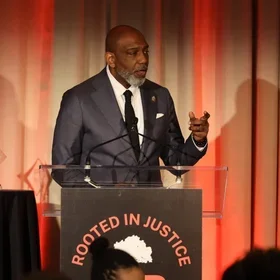A recent study from Columbia University suggests that sustainable activities—including Brazil nut harvesting and fish farming—can outpace the financial gains of gold mining and serve as a solution to long-term forest conservation in the Amazon. The research was published in July in Sustainability.
“All things being equal, forest-friendly livelihoods for the average Peruvian living in this region are as lucrative or more lucrative than the informal mining,” says Dr. Joshua Fisher, lead author of the study and faculty member for the Master of Science in Negotiation and Conflict Resolution program. “Moreover, with some small policy investments and some small interventions, the returns for forest-friendly livelihoods are potentially way more lucrative for the average person.”
Dr. Fisher, who is also Director of the Advanced Consortium for Cooperation, Conflict and Complexity (AC4) at Columbia’s Earth Institute, is among the first to assess whether informal gold mining is a better livelihood than forest-friendly activities for Peruvians who live in Madre de Dios, one of the most biodiverse regions of the world.
The study shows that the region can benefit environmentally, socially, and individually through small and tailored investments in forest-friendly activities. The next step is to take the study’s findings and work with local stakeholders to explore whether and how to pursue these interventions to enhance livelihoods.
Read the full story at the Earth Institute’s State of the Planet and learn more about the Master of Science in Negotiation and Conflict Resolution program at Columbia University’s School of Professional Studies.


